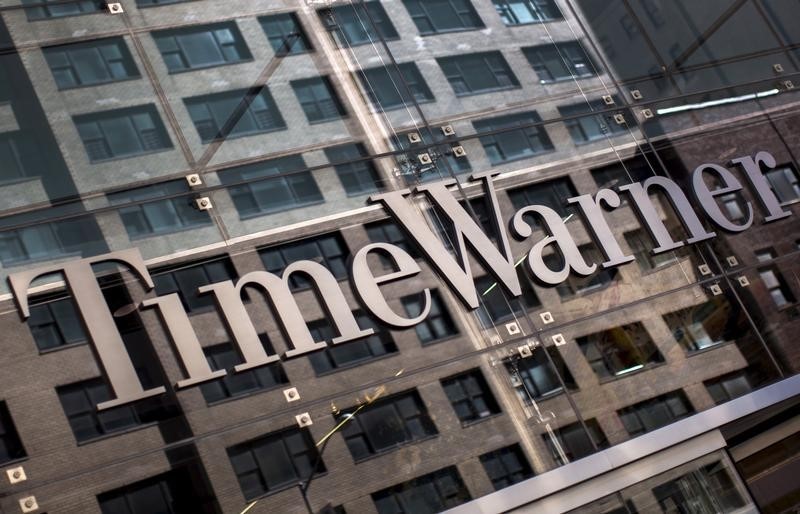By Sagarika Jaisinghani and Arathy S Nair
(Reuters) - Time Warner Inc's shares fell as much as 9 percent after Walt Disney Co alarmed investors with a dour outlook for its cable business, suggesting that more people were switching to video-streaming from paid TV than previously expected.
Disney's comments overshadowed Time Warner's strong quarterly results, which were boosted by a deal with video-streaming service Hulu and the release of "Batman: Arkham Knight" and "Mortal Kombat X" videogames.
"On any other day, this report would likely be warmly received and a positive driver for the stock," Sanford C. Bernstein analyst Todd Juenger wrote in a note.
"But today is not just any day. Today is the day after Disney spooked the sector with their comments that cord-cutting is worse than they thought."
Disney cut its profit forecast for its cable networks unit on Tuesday, citing a decline in subscribers. The company's shares fell about 10 percent on Wednesday.
Time Warner and Disney are remodeling their businesses to grab a larger share of the video-streaming market as consumers increasingly take to watching television shows online, a trend dubbed as "cord cutting".
In April, Time Warner's Turner division, owner of channels such as CNN and TNT, granted exclusive subscription video-on-demand rights for its programs from Cartoon Network and Adult Swim to Hulu.
Time Warner also launched its own standalone streaming service, HBO Now, in the same month.
Less than 1 percent of HBO's cable subscribers had switched to HBO Now, HBO CEO Richard Plepler said on a post-earnings conference call.
Time Warner's revenue rose 8 percent to $7.35 billion, helped by its Turner division and Warner Bros. studio, which together make up more than 80 percent of the total revenue.
The rest comes from Time Warner's HBO network, which airs the hit medieval fantasy series "Game of Thrones".
Excluding items, the company earned $1.25 per share, well above the $1.03 analysts had expected.

Time Warner's shares were down 7.5 percent at $81.07 in afternoon trading. Up to Tuesday's close, the stock had risen about 3 percent this year, compared with a 10 percent rise in the S&P 500 Movies & Entertainment index.